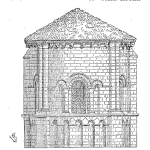
Some quality paradigms are expensive
ABSTRACT
Some quality paradigms are expensive.
Quality is a mindset! When a wise man is given the chance to buy quality items he does so because quality pays for itself.
A quality item lasts longer, runs better and looks good when others fade. To change the way you think about quality takes a lot of experience with using poorer options. When you are sitting down with your head in your hands wondering what can be done to get costs down, to get production up and how you are going to hit the key performance indicators, remember the importance of quality equipment, quality systems, quality training and your quality mindset!
Keywords: quality control
Buying cheap suits
It is the way of people in many cultures to look at the purchase cost of a thing and not its life cycle cost.
They have been taught short-term thinking at the expense of long- term benefits. It is an expensive paradigm by which to live your life.
When you go to buy a suit do you buy the least expensive suit that will fit you? That is what I used to do.
In my ignorance, I thought I was making a smart purchase. I did not understand why it was cheap.
It was cheap because it was not a thick, well-woven fabric, it was not double stitched, the thread holding the buttons were not ended properly, the person sewing the suit would have been paid a meager wage and it would have been made on piece work. Such a suit, by the nature of its manufacture, could not be a quality product.
I needed to buy two such suits and leave one in the wardrobe awaiting the failure of the first. I took this philosophy with me into my engineering career. I did not know better at the time.
For 50% more I could have got a quality, world-class suit that would have lasted twice as long as the two cheaper suits. And for no extra cost, it would have been altered for free to look good on me.
Such a fine suit would have told the world that here is a person of quality with high standards and high expectations from life.
But I had been brought up with the wrong paradigm. Rather, the effect of my choices had never been explained to me.
So in my ignorance, I thought buying cheap was buying smart.
What to take away
It has taken me a long time to realize my great error.
Even today, knowing full well the consequences of buying cheaply, the first thought that comes into my mind is how little do I have to spend to get the job done. I will have to fight against that way of thinking till the day I die. It is the wrong paradigm to use to make equipment purchase choices, terribly wrong!
If such an approach to doing business is ingrain in an organization it will lead to loss of potential long-term profits. It must because that which is cheap must be replaced often. Just like buying a cheap suit.
Suppose that instead the paradigm was turned around!
As an example, take an equipment design engineer or project design engineer given the task to make a thing do a job. But it must last 25 years without a single failure.
It now becomes critical to consider every possible failure cause and design adequate protection for 25 years fault-free service. That is a totally different perspective to what we are used to today.
Now cost is not the decision driver.
Instead quality, creativity, craftsmanship, degrees of perfection and fault-free longevity of service become the decision drivers. That would be something, wouldn’t it! What great pride that would bring the persons that built with perfection as the aim and not the least cost to get through the warranty period.
And what great benefits such a piece of equipment would bring its user. For a few dollars more they would get quality production, problem-free for 25 years.
If you think that such a requirement would cause the equipment to be too expensive to sell or buy, well then let me tell you what I learned long ago about buying suits…!
Mike Sondalini
Equipment Longevity Engineer.
DISCLAIMER: Because the authors, publisher, and resellers do not know the context in which the information presented in the articles is to be used, they accept no responsibility for the consequences of using the information.
If you found this interesting, you may like the ebook Process Control Essentials.
Leave a Reply